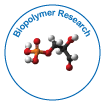Notre groupe organise plus de 3 000 séries de conférences Événements chaque année aux États-Unis, en Europe et en Europe. Asie avec le soutien de 1 000 autres Sociétés scientifiques et publie plus de 700 Open Access Revues qui contiennent plus de 50 000 personnalités éminentes, des scientifiques réputés en tant que membres du comité de rédaction.
Les revues en libre accès gagnent plus de lecteurs et de citations
700 revues et 15 000 000 de lecteurs Chaque revue attire plus de 25 000 lecteurs
Indexé dans
- Publons
Liens utiles
Revues en libre accès
Partager cette page
Abstrait
The Effectiveness of VEGF Signalling Pathway Inhibitors on the Kidney and Their Immunoregulation Mechanism
Betty Andrews
Pathophysiologic processes that are closely related are angiogenesis and immunosuppression. VEGF signaling pathway inhibitors, which are frequently prescribed for proliferative retinal lesions and malignant tumors, can induce hypertension and renal damage in certain patients. These patients may present with proteinuria, nephrotic syndrome, renal failure, and thrombotic microangiopathy. VEGF-A and VEGF-C are both inhibited by VEGF signaling pathway inhibitors. Nonetheless, glomerular endothelial cells’ and podocytes’ physiological function depends on the VEGF-A and VEGF-C that podocytes produce. For kidney disease linked to inhibitors of the VEGF signaling pathway, there is currently no proven treatment, and some patients continue to experience progressive renal failure even after stopping their medication. According to recent research, VEGF-A and VEGF-C blocking can increase cytotoxicity of CD4 + and CD8 + T cells, strengthen dendritic cells’ ability to present antigens, and activate CD4 + and CD8+ T cells.
Revues par sujet
- Agriculture et Aquaculture
- Biochimie
- Chimie
- Food & Nutrition
- Génétique et biologie moléculaire
- Géologie et sciences de la Terre
- Immunologie et microbiologie
- Ingénierie
- La science des matériaux
- Le physique
- Science générale
- Sciences cliniques
- Sciences environnementales
- Sciences médicales
- Sciences pharmaceutiques
- Sciences sociales et politiques
- Sciences vétérinaires
- Soins infirmiers et soins de santé
Revues cliniques et médicales
- Allaitement
- Anesthésiologie
- Biologie moléculaire
- Cardiologie
- Chirurgie
- Dentisterie
- Dermatologie
- Diabète et endocrinologie
- Gastro-entérologie
- Immunologie
- La génétique
- Maladies infectieuses
- Médecine
- Microbiologie
- Neurologie
- Oncologie
- Ophtalmologie
- Pédiatrie
- Recherche clinique
- Soins de santé
- Toxicologie

 English
English  Spanish
Spanish  Chinese
Chinese  Russian
Russian  German
German  Japanese
Japanese  Portuguese
Portuguese  Hindi
Hindi